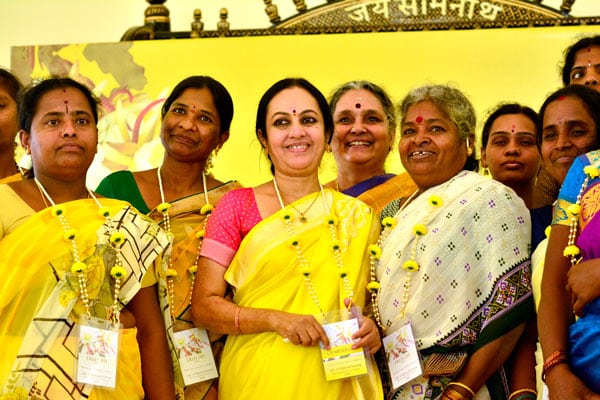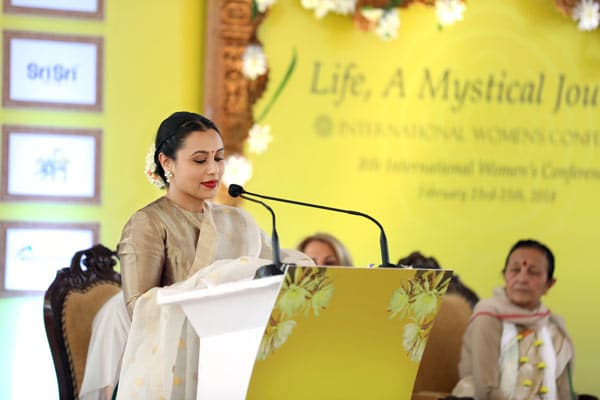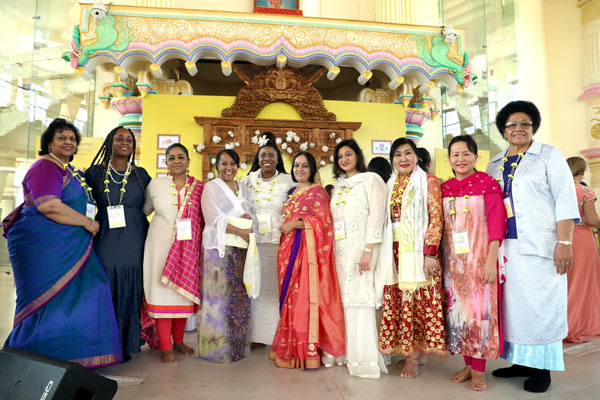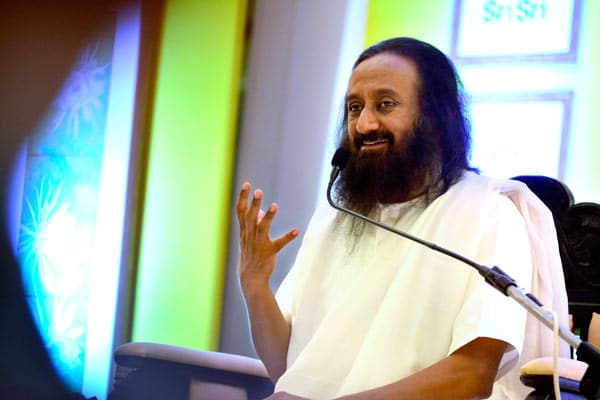February 25, 2018
Bengaluru, India
The 8th edition of the International Women’s Conference (IWC) organized at the splendid Vishalakshi Mantap of The Art of Living International Center drew to a close with speakers like Madhoo, Indian actress of Roja fame, Amish Tripathi, celebrated author, and Anette Kristine Ringnes, researcher at Independent Commission on Multilateralism, sharing their experiences of intertwining womanhood with spirituality, leadership and the way forward.
One of the key outcomes of the conference is a signature campaign kick started by the IWC delegation titled #bringbackourgirls and #yazidigirlsmatter to support and bring to attention the longstanding struggles of the Yazidi women held captive by the ISIS
“Women are the greatest influencers in our lives- she influences the children, the spouse, the parents and society,” said Gurudev Sri Sri Ravi Shankar, Founder, The Art of Living in the inaugural session of the conference, “There are places for women to take a lead, just don’t wait for someone to invite you, just jump in. Peaceful individuals only can make peaceful families and peaceful families can make peaceful communities. And if communities are peaceful, only then nation becomes peaceful.”
The highlight of the 3-day conference were the stories of inspiration, courage and impact, some that moved the collective audience to tears like those shared by the Yazidi women – of what it means to be a survivor of ISIS, and the power of spirituality to overcome the severe trauma they have faced. Like Chetna Gala Sinha, Founder or Mann Deshi Bank, who empowered rural women, rejected by banks, to an an extent where they made it possible to form a cooperative bank. Like Anupama Hoskere, Director Dhaatu Puppet Theatre, who beat all reservations about her ability to learn the craft of puppetry being a woman and excel at it. These are few of the many stories shared at the conference.
“Problems and challenges are always there,” shared Bhanumathi Narasimhan, Chairperson, International Women’s Conference, during the inaugural session of the IWC, “But when we are in the right frame of mind, we can come together to find solutions and move ahead. Most often we are looking for someone else to solve the problem, some hero or some other person. But Gurudev on the other hand has inspired us all to become the change and lead.”
Actor Madhoo paid her respect to celebrated artist Sridevi, after her untimely death last night, “Somebody from our fraternity passed way, I’ve lost a dear friend today. I thought I might not be able to come today. I came, because one thing I’ve known is to show up. I got so much love when I came here, that all that was taken away from me in the morning, I got back. And this for me is my spirituality.”
With women from 60 countries including 250 delegates, 100 rural women, 60 students from over 30 colleges, the conference set the tone for open discussions about critical issues faced by women in positions of leadership and influence and how spirituality provides key tools for their professional and personal journeys.
Apart from the dialogues, the conference was lit up by cultural celebrations. With just three days to prepare, 1000 students from The Art of Living schools across the country presented a classical dance performance. On the second day of the conference, celebrity stylist, Ami Patel, who has dictated fashion trends for Bollywood, curated a unique and special fashion show for the International Women’s Conference this year. She brought together leading fashion labels to contribute for the Gift a Smile project that provides free and holistic education to 58,904 students across 20 states in India with 90% of the students being first generation learners.
This year, the IWC’s prime focus will also be to create open defecation free districts in India. In phase 1, the organization has worked towards sensitization and awareness about use of toilets in 12 gram panchayats across 7 states. In Phase II, 4000 toilets will be built.




